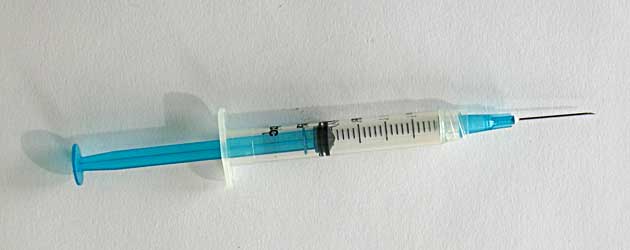 BOSTON, Mass.—Sunday, July 28 will mark the sixth annual World Hepatitis Day sponsored by the World Hepatitis Alliance in collaboration with the World Health Organization.
BOSTON, Mass.—Sunday, July 28 will mark the sixth annual World Hepatitis Day sponsored by the World Hepatitis Alliance in collaboration with the World Health Organization.
Local, national, and international organizations will hold events this week to raise awareness of viral hepatitis. AIDS Action Committee of Massachusetts will offer confidential information, referrals, and support about hepatitis from 9 a.m.-8 p.m. Monday through Thursday and from 9am-5pm on Friday. Call 800-235-2331 or email hotline@aac.org for more information.
“People can live with hepatitis for a decade or more before learning they have the disease, which greatly complicates their eventual treatment and increases the costs of care,” said Rebecca Haag, President & CEO of AIDS Action Committee of Massachusetts, a convening member of the Massachusetts Viral Hepatitis Coalition. “If we don’t slow the infection rate and improve treatment outcomes, the state’s costs for treating people with hepatitis—which is often called the ‘silent epidemic’ because people can live with hepatitis for more than a decade without symptoms—will continue to increase. One of the first things we need to do is to raise awareness of what viral hepatitis is and the devastating impact it is having on the public’s health.” [pullquote]“People can live with hepatitis for a decade or more before learning they have the disease, which greatly complicates their eventual treatment and increases the costs of care,” said Rebecca Haag, President & CEO of AIDS Action Committee.[/pullquote]
A new report released this year by the State Healthcare Access Research Project (SHARP) and prepared by The Center for Health Law and Policy Innovation of Harvard Law School, the Treatment Access Expansion Project, and the Massachusetts Viral Hepatitis Coalition found the average age of death between 1992 and 2009 of those in Massachusetts who had been previously diagnosed with hepatitis C was 53 with the cause of death being either hepatitis C or other causes. Seventy-three percent died within five years of receiving their diagnosis of hepatitis C. During the same period, the average age of death from all causes of those who were not infected with hepatitis C was 75. The report concludes that “many people with [hepatitis C] may be getting diagnosed and entering care late in their illness.”
Facts About Viral Hepatitis
- Viral hepatitis causes inflammation of the liver which can lead to cirrhosis and increased risk of liver cancer.
- There are an estimated 110,000 people living with viral hepatitis in Massachusetts today with between 7,000 to 10,000 new diagnoses annually.
- 14 percent of those living with HIV/AIDS are co-infected with hepatitis C.
- Viral hepatitis is spread in the same manner as HIV, but is much more highly infectious and easily transmitted from one person to another.
- Between 2002 and 2009, the rate of infection among teens and young adults age 15-24 increased 74%, largely driven by the shared use of injection drug equipment.
- In 2008, the number of US deaths attributed to hepatitis (15,768) surpassed, for the first time, the number of deaths due to HIV/AIDS (11,924).
AIDS Action provides on-going outreach, education, and prevention services to those living with viral hepatitis and at risk of contracting hepatitis C in several critical ways:
- Running a monthly support group for people living with hepatitis C
- Providing easy access to PharmaHealth, a hepatitis C specialty pharmacy located in our Jamaica Plain office;
- Providing one-on-one education at our drop-in centers in Jamaica Plain, Cambridge, and Lynn to those at-risk and infected with hepatitis C;
- Operating two needle and sterile injection equipment exchanges, one in Boston and one in Cambridge;
- Making information about hepatitis freely available to providers, researchers, policy analysts, lawmakers, and the general public via the Health Library and a telephone hotline (888-443-HEPC (4372);
- Referring those newly diagnosed with hepatitis C to medical care and providing the support necessary to keep them connected with care
- Advocating for increased public funding to conduct outreach, education, and prevention to those vulnerable to infection with viral hepatitis, and encouraging those born between 1945 and 1965 to get tested for hepatitis C;
- Convening the Massachusetts Viral Hepatitis Coalition
About AIDS Action Committee of Massachusetts
AIDS Action Committee of Massachusetts is the state’s leading provider of prevention and wellness services for people vulnerable to HIV infection. It provides services to one in six people in Massachusetts living with an HIV diagnosis. These services include HIV counseling and testing; needle exchange; mental health counseling; housing assistance; and legal services. AIDS Action works to prevent new HIV infections, support those affected by HIV, and tackle the root causes of HIV/AIDS by educating the public and health professionals about HIV prevention and care; and advocating for fair and effective HIV/AIDS policy at the city, state, and federal levels. Founded in 1983, AIDS Action Committee of Massachusetts is New England’s first and largest AIDS service organization. Learn more at www.aac.org.
[From a News Release]







